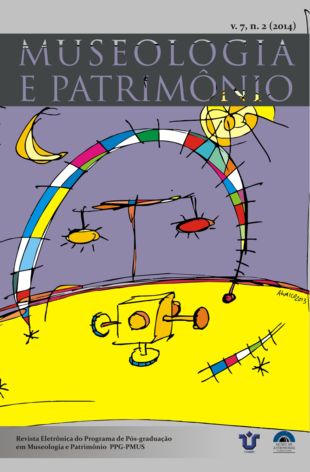Museums, Development and Emancipation: The Paradox of Emancipation and Developmental Speech at (New) Museology
Abstract
The contemporary museum’s identity is founded on an imperative that associates developmental and emancipatory purposes. Renovator’s movements and new concepts amid museology, that propound to strengthen a democratic relationship between the museums and the society, appear homogeneous in affirming the need for museums to approach communities in order to build a local development’s relationship under the leadership of its agents. However, while features of affiliation have reverse the logic of Capital references - as in the case of what happened in relation to liberating pedagogy of Paulo Freire – and the use of a progressive lexicon, of these movements and perspectives – here we speak of a New Museology - organizing their practices from conservative strategies and depoliticization. The way these inputs assume the process of social transformation constructed from the Museum, will be discussed in order to present the contradictions involved in their emancipatory purpose and the close relationship they have with the neoliberal project. This condition is the fact that leads to perceive a paradoxical relationship in emancipatory discourse produced from museology. Finally, the observation of this inconsistency as an alternative to activism of subordinate groups is what inspired reflections on the routes to be followed in the construction of a new institutional framework, which should dissolve this paradox and enable a consistent alternative as it relates to museums and emancipation.Downloads
Download data is not yet available.
Downloads
Published
2015-02-20
How to Cite
Lima, G. G. F. de. (2015). Museums, Development and Emancipation: The Paradox of Emancipation and Developmental Speech at (New) Museology. Museologia E Patrimônio, 7(2), 85–106. Retrieved from http://revistamuseologiaepatrimonio.mast.br/index.php/ppgpmus/article/view/330
Issue
Section
Articles
License
Declaro que o trabalho de minha autoria enviado à revista Museologia e Patrimônio respeita a legislação vigente sobre direitos autorais, arcando com toda responsabilidade quanto ao descumprimento da referida lei.
E autorizo a publicação de meu trabalho, acatando as políticas e normas editoriais da revista Museologia e Patrimônio .

